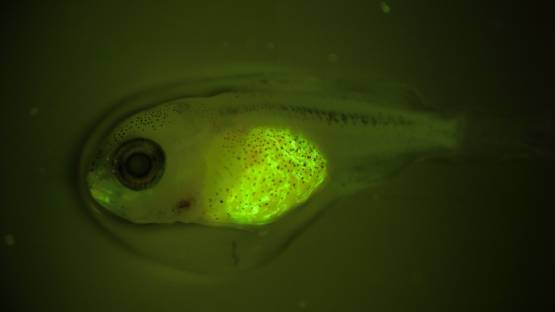Ocean experts from around the world discussed the known and emerging impacts of microplastic pollution on marine organisms at a workshop organized by the IAEA and the Centre Scientifique de Monaco (CSM) for this year’s Monaco Ocean Week.
The workshop, on 22 March, focused on the challenges of assessing microplastics as vectors for pollutants and nutrients in marine organisms, and the difficulties of assessing the impact of plastic additives — chemicals added to modify plastics — on marine ecosystems.
As microplastics take up environmental contaminants and nutrients from the surrounding environment, they can serve as vectors and transfer these pollutants and nutrients to marine organisms when ingested. Plastic additives such as flame-retardants or plasticisers can also accumulate in marine organisms, potentially affecting their health and the health of humans.
“The effects of chemical contaminants from plastics on marine ecosystems are not yet widely understood. Therefore, it is immensely important to identify and fill such knowledge gaps,” said Philippe Bersuder, Head of the IAEA Marine Environmental Studies Laboratory in Monaco. “Knowledge sharing and collaborations between institutions through this workshop will help to expand the current state of knowledge.”
Monaco Ocean Week, from 20 to 26 March this year, is an annual initiative that brings together experts and private sector representatives to discuss new research and carry out analyses on areas relating to ocean health and major issues in marine conservation and preservation. These issues include plastic pollution, sustainable fishing and seaweed farming. The Week was launched six years ago by Prince Albert II of Monaco.
The workshop highlighted the need to investigate the role and impact of microplastics and associated chemicals in the marine environment. “Micro and nanoplastic pollution is observed even in the most pristine and remote coral reefs,” said CSM research scientist Christine Ferrier-Pagès. “The presence of human-made chemicals in coral reefs can increase the risk of coral bleaching. It is therefore critical to understand the impacts of chemicals leaching from plastics to protect the health of coral reef ecosystems.”
During the session, experts from the University of Plymouth, the University of Exeter, the Sea Education Association and Woods Hole Oceanographic Institution, Sorbonne Université, the French National Centre for Scientific Research, CSM and the IAEA addressed the current state of research and knowledge on microplastics. New research applications were identified and potential institutional collaborations for further investigation of the impacts of plastics on marine organisms were discussed.
The workshop concluded with consensus that substitutes for plastics and toxic additives should be evaluated for widespread use in parallel to further research determining which materials may have lesser impacts on ocean health. Workshop participants agreed that where there is a lack of evidence of harm posed by nano and microplastic pollution at environmental concentrations, this should not be a factor in efforts to reduce plastic pollution.
The IAEA Marine Environment Laboratories in Monaco are engaged in a variety of initiatives focusing on preserving and supporting ocean health. The laboratories conduct research on the impact of plastic pollution on the ocean and marine organisms. Under the NUclear TEChnology for Controlling Plastic Pollution (NUTEC Plastics) initiative, IAEA scientists trace the origin of microplastics and examine how they impact marine organisms.
It is critical to understand the impacts of chemicals leaching from plastics to protect the health of coral reef ecosystems.






